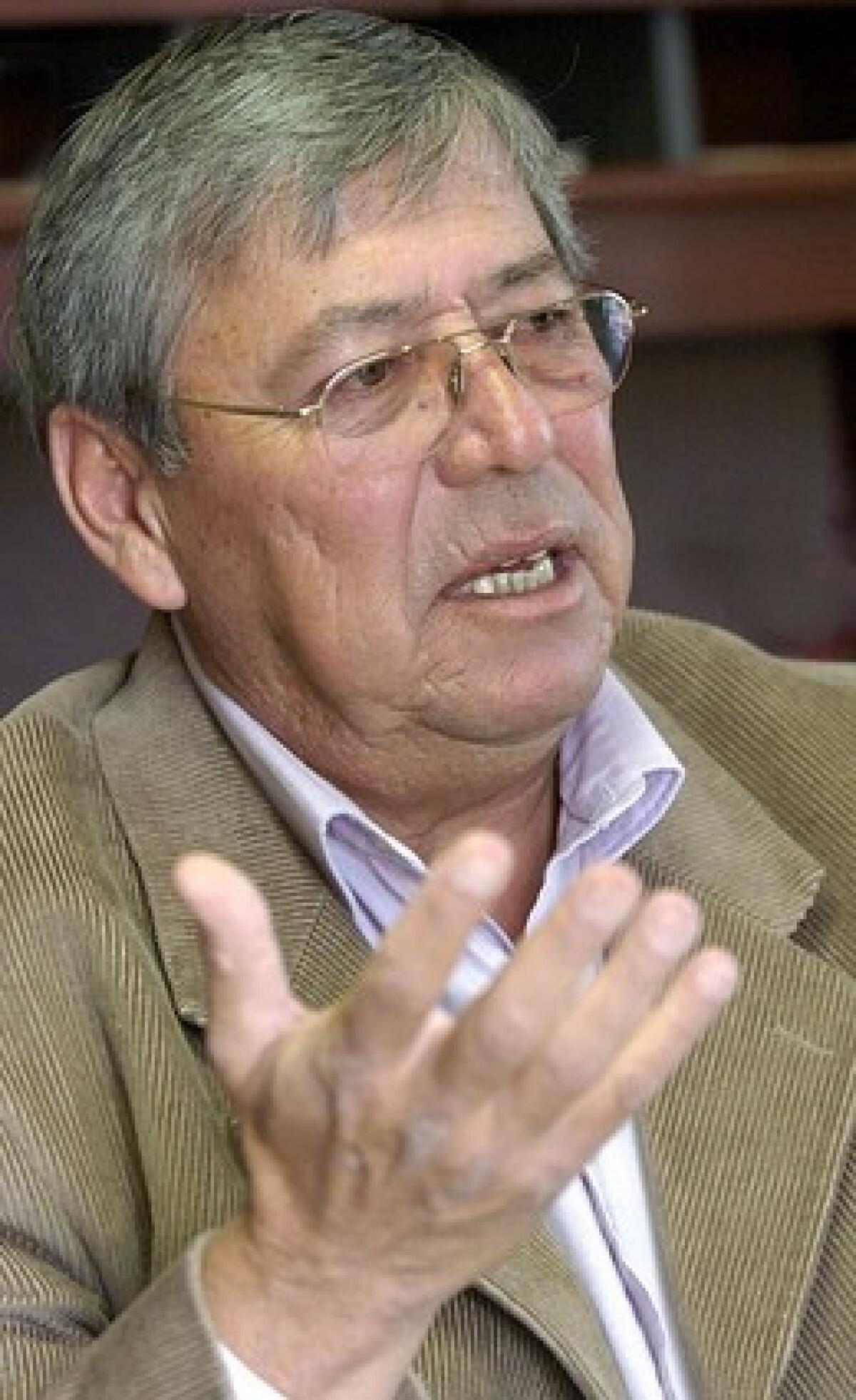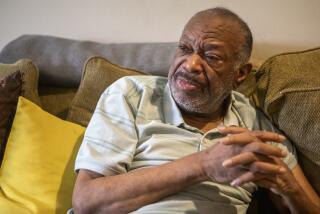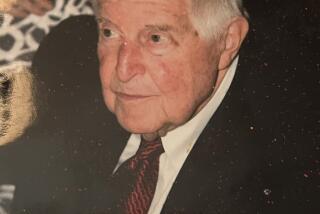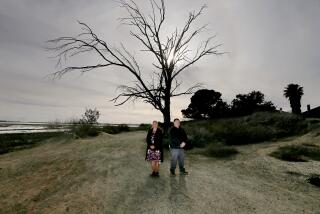PASSINGS

Carl Venne, 62, chairman of the Crow Tribe, was found dead Sunday in his sister’s home near Hardin, Mont., according to the Big Horn County sheriff’s office. He apparently died of natural causes, the office said in a statement.
Venne, who became chairman of the 11,000-member Crow Tribe in 2002, was praised by President Obama as a leader who engaged in a “fervent quest for a better life for his people.”
Venne greeted Obama last summer during a campaign stop in Montana. The Crow adopted Obama as a member of the Black Eagle family. Last month, Obama watched Venne lead Crow horsemen during the inaugural parade in Washington.
Sen. Max Baucus (D-Mont.) said Venne was a progressive leader who “always pushed the envelope when fighting for better healthcare and economic prosperity” on the Crow reservation.
Venne was born in Helena, Mont., and raised by his grandmother at the Crow Reservation. He went into the Army in 1966 and earned his GED there. He served in Vietnam and worked as a police officer after his discharge.
Throughout his tribal chairmanship, he supported programs against the use of methamphetamine and encouraged a healthful way of life on the reservation. He was instrumental in the U.S. Senate Indian Affairs Committee’s selection of Crow Agency, Mont., as the place for a 2007 hearing on Indian healthcare.
Bernard Ashley He helped take wife’s design business global Sir Bernard Ashley, 82, who teamed up with his wife to build the Laura Ashley fashion and home furnishings brand into a global business, died Saturday at his home in the Elan Valley in Wales, his family said. The cause of death was not announced.
Ashley had the business brain that propelled his wife’s flair for nostalgic designs and floral prints into a thriving business.
He was born Aug. 11, 1926, served in the British army during World War II, then married Laura Mountney in 1949.
Inspired by a trip to Italy four years later, she designed some scarves. The couple, who had invested 10 pounds in a screen, dyes and linens, made the scarves in their apartment and found a ready market.
They gradually built up the business; by the time Laura Ashley died in 1985, the group had 220 shops in 12 countries. But in 1990 the company reported its first loss. Critics said the company had expanded too rapidly and had not nurtured new talent.
Expansion into the U.S. proved especially troublesome, and the company struggled for years with losses, management clashes and changing fashion tastes.
Ashley had a reputation as a sometimes prickly and temperamental man -- “a sort of walking whirlwind, full of ideas,” in the words of former Ashley designer Brian Jones.
Ashley retired as chairman of Laura Ashley Holdings in 1993 but remained a board member until 1998.
MUI Group of Malaysia gained control of the company in 1998 and it sold the North American stores the next year. The Ashley family cut its connections to the company in 2001.
In 2000, Ashley set up a new fabrics business, Elanbach, at Llangoed Hall, a country house hotel he owned.
Peer Portner
Nuclear physicist invented implanted heart pump
Peer Portner, 68, the inventor of an implanted electrical pump for heart-failure patients, died of cancer Feb. 9 at his home in the San Francisco Bay area, according to an announcement from Stanford University.
Originally trained as a nuclear physicist, Portner became a consulting professor of cardiothoracic surgery at Stanford University School of Medicine. He began working with doctors at the school in the early 1970s to develop his pump, called the left ventricular assist device.
In 1984, the device kept a heart patient alive for eight days until a transplant was found, the first time such a device was successfully implanted in a human, the university said.
He founded Oakland-based Novacor Medical Corp. to develop the pump and led research for more than 30 years to improve the device.
More than 1,700 patients in more than 100 medical centers around the world have had one of the devices implanted.
Portner was born a British citizen in Kenya and received his undergraduate and graduate degrees from McGill University in Montreal. He was a National Research Council Fellow at Oxford University in England.
-- Times staff and wire reports
More to Read
Start your day right
Sign up for Essential California for the L.A. Times biggest news, features and recommendations in your inbox six days a week.
You may occasionally receive promotional content from the Los Angeles Times.






